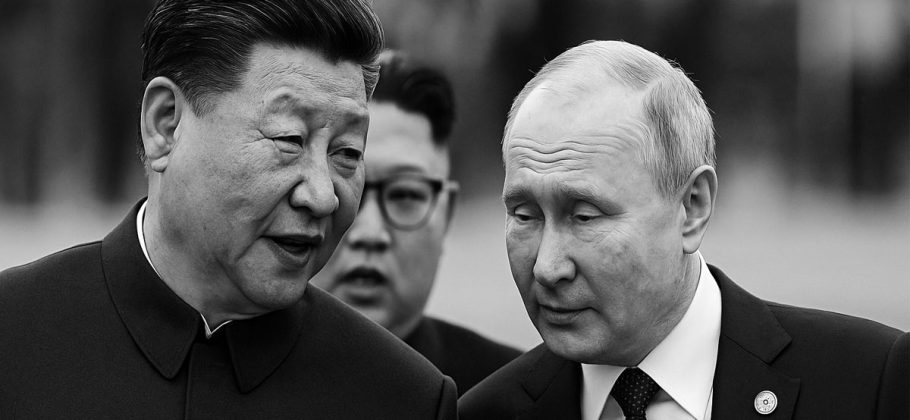A conversation that was never meant to be heard
On September 3, 2025, a military parade in Beijing marking the 80th anniversary of the end of World War II became the stage for a startling revelation. As Xi Jinping, Vladimir Putin, and Kim Jong Un ascended the Tiananmen rostrum, a hot mic caught Xi and Putin musing about life extension through organ transplants. The exchange was broadcast live across Chinese state media before the feed abruptly shifted to a wide shot of the square.
“Earlier, people rarely lived to 70, but these days at 70 you are still a child,” Xi said in Russian through a translator. Putin replied in Mandarin, “As biotechnology advances, human organs can be continuously transplanted, allowing us to become younger and younger, perhaps even achieve immortality.” Xi added, “Predictions are that in this century, there’s a chance of living to 150.”
Both leaders, age 72, seemed fascinated by the idea of cheating death. But their words raised deeper questions, especially given the mounting evidence of forced organ harvesting in China.
What Xi and Putin’s remarks reveal
Putin later confirmed the conversation to reporters, saying, “Modern means, both health improvement, and medical means, and even all kinds of surgical ones related to organ replacement, allow humanity to hope that active life will continue not as it does today.” His phrasing made clear he sees organ transplantation as a tool for longevity, not just medicine.
Human rights experts argue this candid moment revealed a dark worldview. Nina Shea of the Hudson Institute said, “This unguarded conversation between these two tyrants lends credence to our concerns that they are creating a real-life science fiction dystopia by forced organ harvesting from those they see as political enemies.”
The horrifying truth of forced organ harvesting
The Chinese Communist Party has been accused of harvesting organs from prisoners of conscience for more than two decades. In 2006, eyewitnesses reported that detained Falun Gong practitioners were being killed in secret facilities so doctors could extract corneas, livers, and hearts, followed by cremation to hide the evidence.
A 2019 study in BMC Medical Ethics found China’s transplant data too perfect to be real, indicating manipulation. That same year, the London-based China Tribunal concluded that forced organ harvesting was still occurring on a large scale, primarily targeting Falun Gong practitioners but also Uyghurs, Tibetans, and underground Christians. The Tribunal declared it “one of the worst mass atrocities of this century.”
Most victims do not live to tell their stories. But Cheng Pei Ming, a Falun Gong practitioner, survived. In 2004, while imprisoned for his faith, he was sedated and awoke shackled to a hospital bed with a bloody incision. Later medical tests in the United States revealed that part of his liver and lung had been removed without consent. “Nobody knows what we meant by a survivor of forced organ harvesting because 99.9 percent die after being organ harvested,” said Professor Sen Nieh, who helped Cheng escape.
Mobile death vans
Adding to the horror are China’s mobile execution vans. Disguised as buses, they have been roaming the country since the late 1990s. Inside, they administer lethal injections and immediately harvest organs. These vans allow executions to happen on the spot, with no trial, no lawyer, and no due process. Rights groups believe thousands are executed this way every year.
House Speaker Mike Johnson said the hot mic moment highlighted “horrific stories of these organ transplants” in China, adding that “they take it from unwilling donors … to put it mildly.” Representative Chris Smith compared it to Nazi atrocities: “The act of killing for organs is right out of Nazi Germany and Joseph Mengele.”
International organizations have echoed these concerns. UN experts in 2021 expressed alarm over evidence that prisoners, especially Uyghurs and Falun Gong practitioners, were being targeted for their organs. Human rights lawyer David Matas said the absence of surviving victims or crime scenes makes evidence hard to obtain, but Cheng’s survival gave the world a rare voice from within the system.
For years, many Western governments dismissed reports of organ harvesting. But in 2025, the U.S. House passed the Stop Forced Organ Harvesting Act, threatening up to 20 years in prison and $250,000 fines for those involved. The Falun Gong Protection Act followed, with sanctions aimed at shielding practitioners from persecution. States like Texas and Tennessee also passed laws banning health insurance coverage for transplants involving Chinese organs.
Senator Marco Rubio pledged to push legislation forward in the Senate. “We would obviously be helpful in any way we can,” he said, describing organ harvesting as a crime too horrific to ignore.
Even Chinese officials have struggled to justify these practices. Heng He, an expert on Chinese politics, explained that Beijing tries to smear Falun Gong rather than defend organ harvesting itself because “nobody can.” As Dr. Sean Lin put it, “The darkest crime they’re doing right now is organ harvesting. Maybe there are even darker crimes … but the CCP is very afraid of this being further exposed.”
A moral test for the world
The hot mic moment between Xi and Putin may have sounded like casual banter about longevity. But for human rights advocates, it confirmed fears that powerful leaders see organs as commodities. Survivor Cheng Pei Ming said, “I am one of the lucky ones—I survived. But there are countless others who did not. Their voices were silenced, but I will continue to speak for them.”
The question now is whether the United States and the world will act. If Xi and Putin’s offhand comments are any guide, the pursuit of immortality is not just science fiction—it is built on the suffering of real people.
FAM Editor: This gives you an idea of how differently the elite in China and Russia think. In the West stealing organs from innocent people is unimaginable crime. In China, it is not only imaginable, it is organized and operating.





